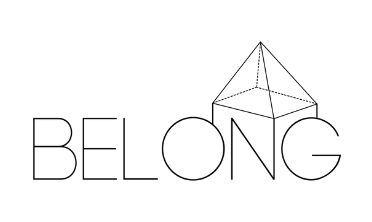When considering renting out a property that you own, you need to be aware of the tax considerations. Renting out a property could leave you responsible for rental income taxes, but you may also be eligible for special deductions that can make the process much more lucrative.
Learn more about IRS rules on taxing rental income, plus the top five expert tips on rental deductions that you don’t want to miss out on when filing taxes.
According to the IRS: Understanding Rental Income
Do you have an idea of how rental income works and is taxed by the US government?
The IRS provides a lot of helpful information on this topic that property owners should review as they rent out their properties or holiday homes. This article will summarize the key highlights.
What is Rental Income?
If this is your first experience renting out a property or holiday home, you might be somewhat confused about what qualifies as rental income. For most tax purposes, rental income should include the following:
- All rent received during the tax year – As outlined by the IRS, rental income is ‘any payment you receive for the use or occupation of a property.’
In addition to regular rental payments received, there are other payments you may receive that constitute reportable rental income, including:
- Security deposits – If you receive a security deposit that you intend to return to a tenant at the end of their lease period, then it doesn’t need to be included. However, if you keep part or all of a tenant’s security deposit in lieu of a final rent payment or due to a tenant not upholding their obligations as per the lease agreement, you must include these funds in your rental income total. Tenants can request up to twice the amount of the security deposit back if a landlord keeps their deposit in ‘bad faith’.
- All advance rent received during the tax year – Advance rent includes any amount you are paid in advance of the period that it covers. Regardless of the period that it covers, you must include advance rent payments in your reportable rental income for the year in which you receive it. For example, if you sign a five year lease to rent your property out and you receive $2,500 for the first year’s rent and $2,500 for the last year of the proposed lease, you must include $5,000 as the total rent received for that property in the first year.
- All payments received to cancel a lease during the tax year – If a tenant pays you a fee for canceling their lease, this is considered additional rental income and must be reported as such. This, too, should be reported in the year that you receive the funds.
- All expenses paid by the tenant to you for utility access – Should a tenant pay any of your costs, they must be included in your rental income when reporting. You may still deduct these expenses if they fall in the category of a deductible rental expense. For example, perhaps you have a tenant that pays the water bill for your rental property and then deducts it from the normal rental payment amount. Your tenant is not obligated to pay this bill under the terms of the lease, therefore the utility bill payment, as well as any rental payments received, should all be included as rental income in your reporting.
While some of this income may be deductible, it needs to be included with your total rental income amounts as you prepare your taxes.
The only exception to rental income is renting out a unit or dwelling for less than 15 days during a calendar year. If this is the case, you do not have to report any rent earned in this fashion as rental income.
Splitting Personal and Rental Time
Many holiday homeowners will use a holiday house for part of the year and then rent it out for the other part of the year. The IRS has specific rules on determining if the property should be considered a residence or not. Review these rules, as this will affect what amount and types of deductions you can use.
Top 5 Rental Deductions
Being successful as a long-term stay provider isn’t just about making sure your properties are rented out as frequently as possible. It’s also about ensuring that you are making the right calls regarding income, taxes, and deductions.
These are the top five rental deductions that experts suggest you check for when renting out property. While they may not all apply to your situation or properties, it’s a good idea to review your taxes before filing to make sure.
#1: Interest on Property Mortgage
This is one of the most straightforward deductions. You can deduct interest paid towards your rental property’s mortgage because it is a business expense. If you split the property between personal and business use, make sure to separate any interest paid accordingly.
Every January, you will receive a 1098-E form from your lender; this form will make it easy to calculate and add any necessary deductions to your Schedule E.
#2: Depreciation Deductions
On the other hand, depreciation is one of the more complicated deductions that your property could be eligible for. The value of rental properties, and the renovations done to them, will depreciate over time. You may divide that out and deduct it for the depreciation year after year.
#3: Property Taxes
You can deduct property taxes paid as part of business activities and a percentage of property taxes paid for personal use. The exact amounts you can deduct can change based on federal guidance each year, so you will want to review this information to ensure you deduct as much as possible.
#4: Repairs
It is legal to deduct the cost of routine upkeep and repairs while filing your taxes, but make sure that you do not deduct any capital improvements as these should be worked into the property’s value instead. Capital improvements are more extensive repairs and remodeling, such as adding an addition, replacing the roof, or redoing the AC system.
On the other hand, repairs are limited to more minor actions like replacing doors, filling holes, and otherwise keeping the unit in habitable condition. The good news is, if you buy furniture to furnish your rental property or buy household items for your tenants, you can claim a tax deduction for those costs.
#5: Other Deductions
Depending on your specific circumstances, there can be a variety of other deductions that you could be eligible for, including but not limited to:
- Marketing and advertising costs
- Utilities
- Insurance costs
- Business activity costs such as transportation
The importance of keeping good records
Practicing good record keeping will help you to efficiently monitor the success of your rental property and keep everything optimally organized to assist with preparing financial statements and tax returns. Being able to rely on well-kept records also assists in keeping track of deductible expenses and, perhaps most importantly, enables you to support the items you report on your tax return.
Not only do well-kept records assist greatly in preparing your tax returns, but, should you ever be audited, you must be able to provide evidence to support your claims. If you are audited and fail to support items on your tax return with documented evidence, you may be subject to penalties or additional taxes. It can be helpful to use software designed for such record-keeping to optimally organize your profit, losses, and expenses, and many applications can simultaneously be used to monitor the overall profitability of your real estate ventures.
Location Matters: Pay Attention To Differences in Rules
Depending on where you are a citizen, where you own property, and where you are legally required to file taxes, there may be some differences in the rules that you need to follow. For example, UK citizens that own holiday homes in the US that they intend to rent out will need to follow the regulations of each country, not just one of them.
Reviewing the rules can get complicated, so it may be worth the investment to bring on a qualified and educated accountant who can ensure that you keep your small business plans straight as you move forward into the rental industry.



























